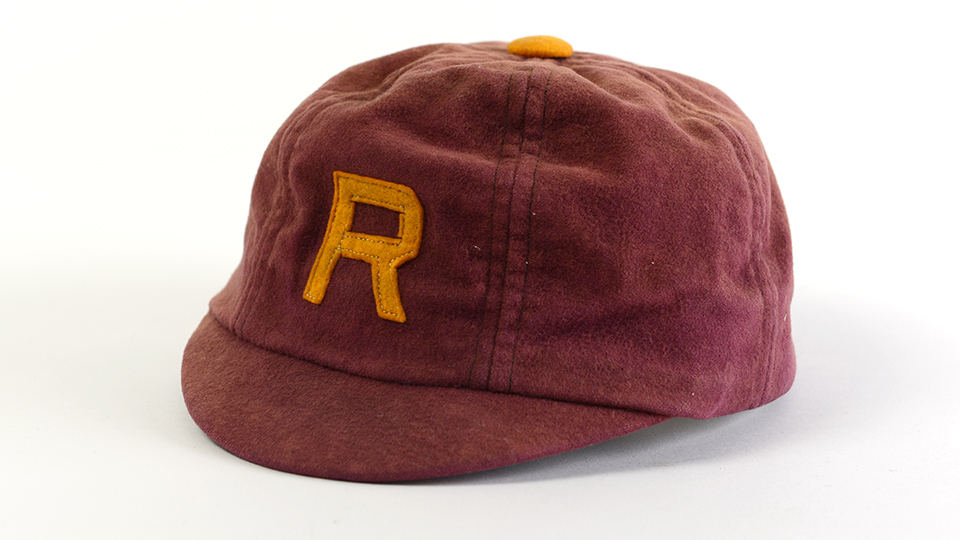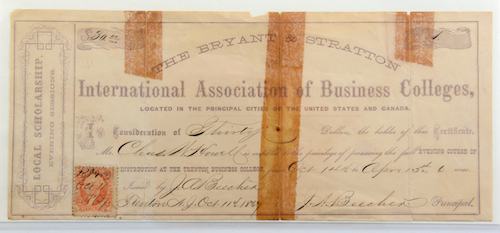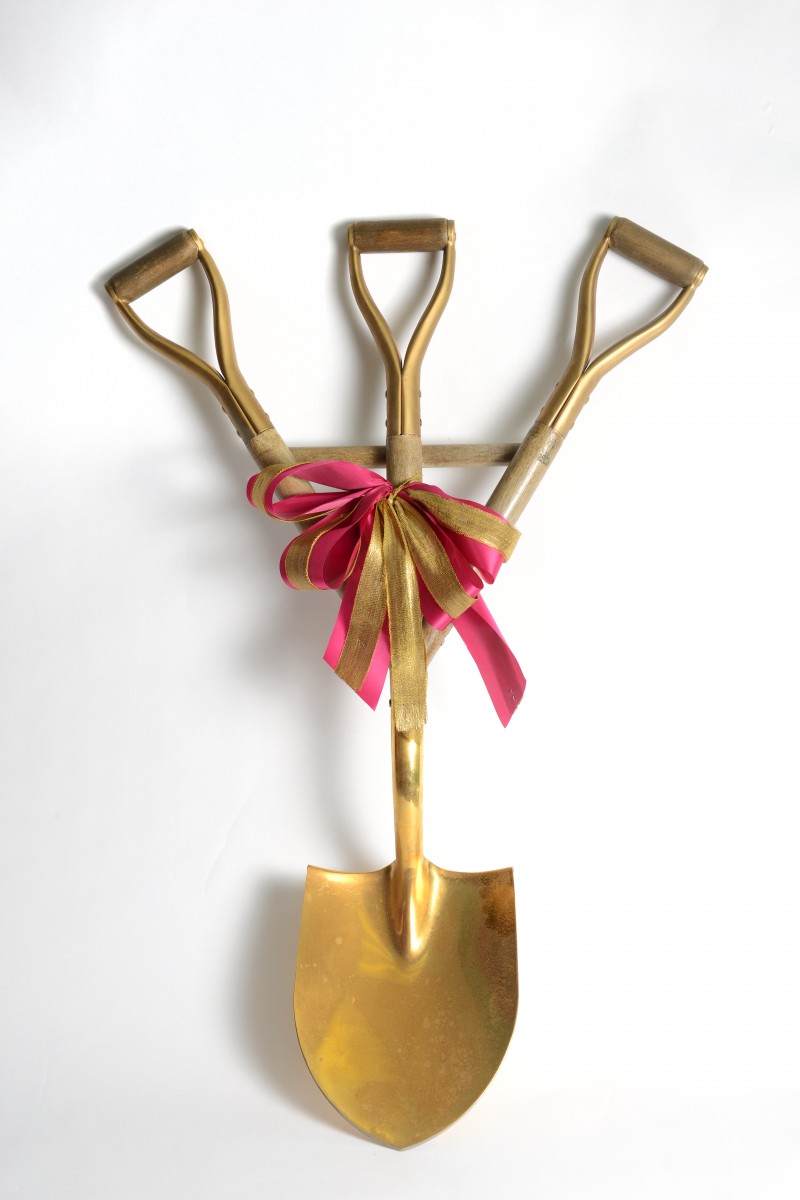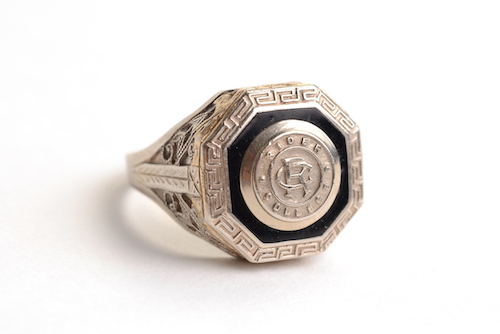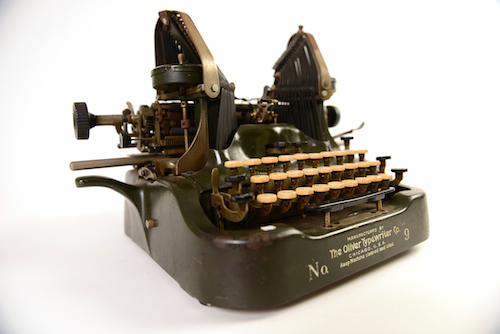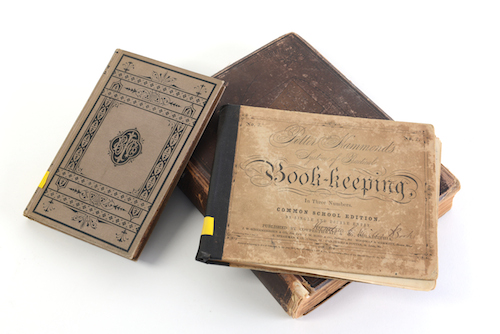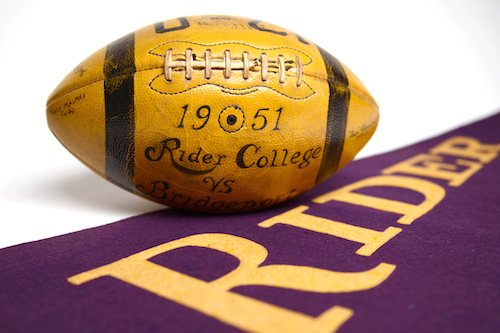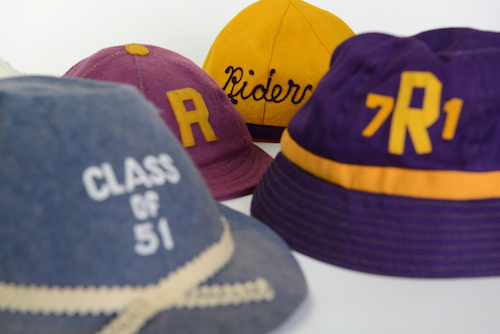$30 scholarship
This 1867 scholarship certificate allowed the bearer to attend any of the other 46 colleges in the Bryant & Stratton chain of schools without being charged additional tuition fees. Joseph Andrew Beecher, the fourth resident principal/president of the Trenton Business College and first sole owner of the entire school, signed the certificate. Common at the time, such certificates were targeted to help students.
Three-handled shovel
This shovel was used for the groundbreaking of the Lawrenceville Campus on Saturday, April 27, 1957. After 92 years, the College was relocating from its original home of Trenton to Lawrenceville. A thousand people, including the Board of Trustees, students, faculty and alumni, gathered that day on Pate Farm, as cattle grazed on other parts of the property and President Franklin F. Moore, Vice President J. Goodner Gill and Provost Leonard A. Olson grasped the shovel’s handles during the ceremony. By 1964, the College had completely relocated to the new location.
1930s class ring
Classes graduating in the 1930s, which could receive rings upon graduating like the one above, lived through many changes at Rider, including the deaths of President Franklin Benjamin Moore and Vice-President John Edward Gill within six weeks of each other in 1934. That same year, the new college alma mater song, “In Our Days of Youth,” was introduced. The College’s first pep song, written by Fred Waring, was sung on Oct. 13, 1939. The student newspaper was changed from The Rider Rooster to Rider College News on Jan. 17, 1930. Rider’s first librarian, Sally Mytton, was appointed on May 1, 1934, just one month before a new library opened in adjacent to the main college building in Trenton.
Butterfly typewriter
Rider was one of the first colleges in the United States to teach typewriting. The subject was taught as early as 1874. The Oliver typewriter, pictured here, is the first typewriter to be able to use “visible print.” It had distinctive U-shaped bars, and it was the first to find success in the market for home use.
Early textbooks
Louis A. Leslie was the chief editor of the Gregg Publishing Co. and a leading authority on shorthand systems. In 1987, he donated approximately 4,000 books and periodicals on shorthand, typing and the history of shorthand education to the archival collection. Kendrick C. Hill, a scholar in the field of stenography and an early faculty member of Rider College, also donated his personal library of shorthand, accounting, auditing and bookkeeping materials to the University.
Rider football
This football represents the final game between Rider and Bridgeport, in which Rider won 12-0. That year was also the final season of the Rider football team after it was re-introduced in 1946. Though the team had amassed winning records from 1928 to 1931, including its only undefeated season in 1929-30, a change in Rider’s athletic policy precipitated the end of its football program. Several campaigns sought to revive the team, which was finally reintroduced in 1946 because of the strong demand by enrolling veterans.
Rider beanie
The beanie was a tradition for freshmen students at Rider College during the 20th century and part of a school- mandated policy. Before the 1960s, all freshmen had to wear the cap at all times. Upperclassmen could dictate the exceptions to this rule. Traditionally, the freshmen would wear the caps from September to Thanksgiving. Starting in 1961, freshmen men were prohibited from wearing the caps inside the classroom. There were other rules, such as tipping your cap to a fellow undergraduate who was wearing a block letter “R.”

